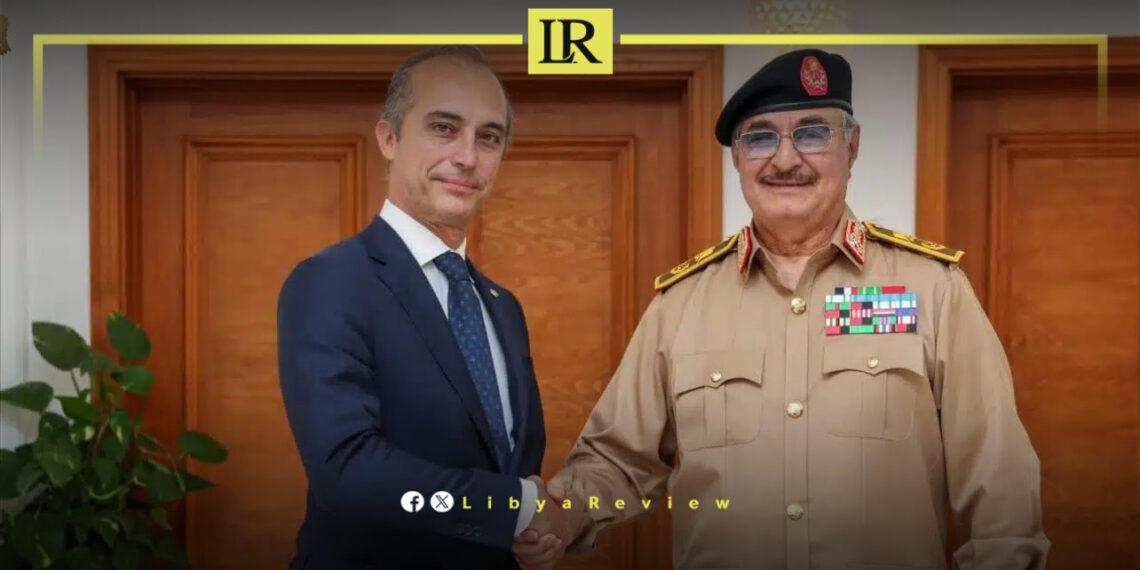On Tuesday, the General Commander of the Libyan National Army (LNA), Field Marshal Khalifa Haftar, held talks with the Italian Ambassador to Libya, Gianluca Alberini, at the LNA’s headquarters in Benghazi.
The meeting focused on the latest political developments in Libya and ways to enhance cooperation between the two countries, emphasizing shared interests and regional stability.
Haftar’s engagement with Italy underscores the importance of maintaining strong international ties during Libya’s fragile political period. Both sides discussed avenues for bilateral cooperation that align with Libya’s efforts to stabilize its political and security landscape.
The Italian ambassador’s visit highlights Rome’s continued interest in Libya, particularly regarding migration management, energy collaboration, and ensuring stability in the Mediterranean.
The meeting follows Haftar’s recent talks with the French Ambassador to Libya, Mostafa Mihraje, at the same venue two days earlier. During those discussions, Haftar and Mihraje reviewed local and international developments, exploring opportunities for greater coordination between Libya and France to promote mutual interests.
Libya remains mired in political fragmentation, with rival factions in the east and west vying for control. Haftar, who commands significant influence over the country’s eastern region, has become a central player in shaping Libya’s future, despite stalled peace processes. Italy and France have kept open lines of communication with him, recognizing his role in any potential political resolution.
For Italy, Libya is a critical partner in migration control and energy security, as irregular migration flows from Libya’s coast continue to put pressure on Europe.
France, meanwhile, focuses on security coordination and counter-terrorism efforts in the region, viewing Libya’s stability as essential for broader security in North Africa and the Sahel. These diplomatic meetings signal both countries’ interest in ensuring that Libya remains a reliable partner despite ongoing political uncertainty.


